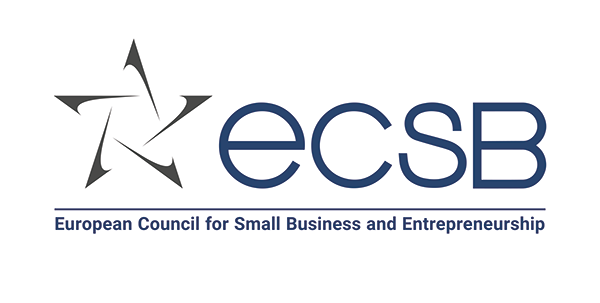
|
Developing futures thinking in entrepreneurship education
Facilitators
Ulla Hytti (University of Turku) and David Higgins (University of Liverpool)
with support from partners in the TrEE (www.transformingee.eu) project
Addressing climate change and biodiversity loss and responding to the United Nations’ Sustainable Development Goals (SDGs) are highly topical within the entrepreneurship education (EE) community and being integrated into entrepreneurship education and teaching formats. In this workshop, the aim is to test, further develop and adopt a new educational practice focusing on “Developing futures thinking in entrepreneurship education”. To remain hopeful in times of complex crises (Dodd et al., 2022) and to be able to act on these difficult challenges, it is necessary to cultivate the students’ ability to think about and enact the future. In this workshop we showcase and enable experimenting with a learning innovation that aims to engage students in futures thinking by relying on dimensions of futures consciousness (Ahvenharju, 2022): 1) Time perspective (understanding the value of long-term thinking), 2) Agency beliefs (future is the result of a complex web of interconnected individual actions; differentiation between issues that can and cannot be influenced), 3) Openness to alternatives (critical evaluation of established truths to discover unconventional solutions and alternative paths, tolerance for uncertainty regarding the future), 4) Systems perception (interconnectedness between human and natural systems, complex consequences of the decisions) and 5) Concern for others (well-being of others beyond ourselves, including the future generations).
Workshop format
The workshop includes a brief introduction to futures thinking after which the participants are invited to experientially engage in student assignments focusing on futures in entrepreneurship education. Afterwards, the participants are asked to discuss and evaluate their learning experience and reflect on the value and concrete ways how to adopt futures thinking into their own teaching and courses. The workshop will end with a short wrap-up. Prior to the workshop, the participants will also be invited to test their own futures consciousness in an online test.
Target audience
Entrepreneurship educators interested in developing futures thinking (and sustainable development goals) in their entrepreneurship teaching
Takeaways from the workshop for participants
A learning innovation on futures thinking in entrepreneurship education (including further readings, curated teaching materials and instructions for the student assignments and their assessment). An ability to reflect on the role of futures thinking in their own entrepreneurship teaching.
Ahvenharju, S. (2022). Futures consciousness as a human anticipatory capacity: Definition and measurement. Doctoral thesis, University of Turku. PDF Full Text https://urn. fi/URN.
Dodd, S., Lage-Arias, S., Berglund, K., Jack, S., Hytti, U.& Verduijn, K. (2022) Transforming enterprise education: sustainable pedagogies of hope and social justice, Entrepreneurship & Regional Development, 34:7-8, 686-700.
>> Register to this PDW <<
Designing meaningful research-practice collaborations in entrepreneurship research
Facilitators
Prof Pablo Muñoz, Dr Sanne Elbrink, Rodrigo Frias, and Jeni Smith
Durham University Business School, Durham, UK
In this PDW, we will explore different strategies to increase the impact of entrepreneurship research through developing meaningful engagement between researchers and practitioners. We will address the tension between achieving academic goals and addressing real-world challenges and propose ways to meet the needs of all stakeholders. In the workshop, we discuss developing meaningful research-practice collaborations, such as networks, communities of practice and policy engagement. Additionally, we will discuss advanced ways to intensify research-practice collaborations further and elaborate on co-creating research through prospective inquiry. Participants are invited to bring forward their own experiences. In small groups, we will further reflect on these experiences and brainstorm strategies to increase engagement.
Workshop format
Setting the scene: relevance crisis in research and the widening gap between academic research and practical needs.
Block 1: Developing and implementing research-practice collaborations – three short presentations
Block 2: Intensifying research-practice collaborations – one presentation
Roundtable discussions: small group discussions where participants can elaborate on their own experiences.
Audience
The workshop is relevant for:
- Entrepreneurship scholars: increase their impact beyond academia and create more meaningful research
- Entrepreneurs: enrich their practice by collaborating with entrepreneurship scholars.
- Policymakers: learn more about developing supportive policies and meaningful collaborations between research and practice.
- Suppliers of education and training services: learn more about capacity building and utilising the power of research-practice connections.
Key Takeaways
- Participants gain an understanding of the relevance crisis in entrepreneurship research and the role of meaningful research-practice engagement.
- Participants learn to explore different types of research-practice collaborations:
- Research-practice networks – building strong connections within and beyond academia
- Policy engagement – shifting from identifying policy implications to proposing policy actions
- Communities of practice – how to utilise research-practice communities of practice and go from knowledge sharing to action
- Participants learn how to increase relevance in entrepreneurship research through more intensive research-practice collaborations.
REGISTRATION CLOSED
Pursuing Impact in Entrepreneurship Research with Design Science Approaches
Facilitators
Dimo Dimov, University of Bath
Leonhard Gebhardt, ICN Business School
Franziska Günzel-Jensen, University of Aarhus
Verena Meyer, Leuphana University of Lüneburg
Simon L. Schmidt, University of Göttingen
Are you curious about how to make a positive impact with your research? Or to double down on making a difference in the “real world”? With this PDW, we give you actionable advice and a tool to identify such contributions for your research. The RENT community is buzzing (already) with innovative and transformative entrepreneurship. At the same time, while crucial issues are addressed, the current research paradigms tend to adopt a stance of describing and interpreting phenomena. Most of the time, researchers find themselves as neutral observers and detached analysts. Hence, impactful researchers hold only one piece of the puzzle (“how things are”) in understanding and solving the real-world problems they encounter.
As a complementary paradigm, design science aims to go beyond describing and interpreting existing, taken-for-granted phenomena. Instead, it focuses on developing and implementing interventions to bring about new, desirable phenomena (futures). Embracing design science approaches promises to accelerate progress toward achieving meaningful, real-world impact. Researchers adopt the role of scientifically deriving and describing knowledge on “how things ought to be.”
Join us for an exciting PDW on “Pursuing Impact in Entrepreneurship Research with Design Science Approaches.” In this session, you will explore how to enhance your research with design science.
Workshop format
The workshop will feature two parts. In Part 1, we will briefly reflect on the prominent research paradigms today and share the associated current limits of impactful research. We then present how and when design science can benefit you in pursuing impactful research.
In Part 2, we will hold an interactive working session. You will receive insights and practically test how you can enrich your current and future research for impact with design science. We introduce and use the Design Science Contribution Generator, a tool developed for this workshop. It will guide our interactive session by offering a grid for developing and using theories to aim at better futures via design science. You will go through various stages to discover how design science could help you to achieve a positive real-world impact.
Audience
There are no requirements to join this PDW! Whether you’re a novice or an experienced design science scholar, this PDW offers a unique opportunity to enhance your research with design science.
Key takeaways
- Understand the current limits of impactful research
- Learn how design science can overcome these limits
- Rethink your research towards enhancing it with a design science approach
- Network with scholars dedicated to creating positive impact via design science
>> Register to this PDW <<
Business Support for Entrepreneurs and Small Firms: Access, Design, and Impacts
Facilitators
Robert Wapshott, Haydn Green Institute, University of Nottingham
Jian Liu, University of Twente and Erasmus+ Project Administrator and Researcher at Wittenborg University of Applied Sciences
Robert Blackburn, Brett Centre for Entrepreneurship, University of Liverpool
Government support for small firms to innovate, grow and succeed is widespread and widely criticised. Despite the existence of support, in various guises, for decades, there remain important questions about the accessibility, design, and effectiveness of initiatives. How these questions are studied and answered has implications for researchers, policymakers and for practitioners, and the RENT community is ideally placed to engage on this topic.
Whatever your views on the topic of business support, in its various guises, if it’s a topic that interests you, you’ll be most welcome to join us in this PDW.
More broadly, the topic relates to a call for submissions to a Special Issue at International Small Business Journal (details available September 2024), co-edited by Wapshott and colleagues.
Workshop format
The session will be a participant-led and interactive workshop around the themes of:
Surfacing Key Questions, getting to grips with the core challenges and opportunities.
Establishing a Research Agenda collectively to advance the study of business support, incorporating diverse perspectives from across the RENT conference tracks.
Exploring Pathways to Impact by considering how our shared insights can be translated into impactful actions.
Building Connections among participants with shared interests.
Audience
All are welcome to contribute to our session, from the simply curious to the topic expert. As examples only, you might be a:
- Researcher seeking to discuss insights into current challenges and innovative approaches in business support, new research questions and collaboration opportunities to enhance your work.
- Policymaker keen to exchange ideas on evidence-based best practices and practical recommendations to inform the development and refinement of interventions aimed at improving business support systems.
- Practitioner or Ecosystem Stakeholder interested in designing and delivering effective business support services.
Key takeaways
- Insights on studying and improving business support systems.
- Key research questions and potential collaborative projects.
- Expanded network of colleagues with whom to share ideas and pursue interests.
>> Register to this PDW <<



